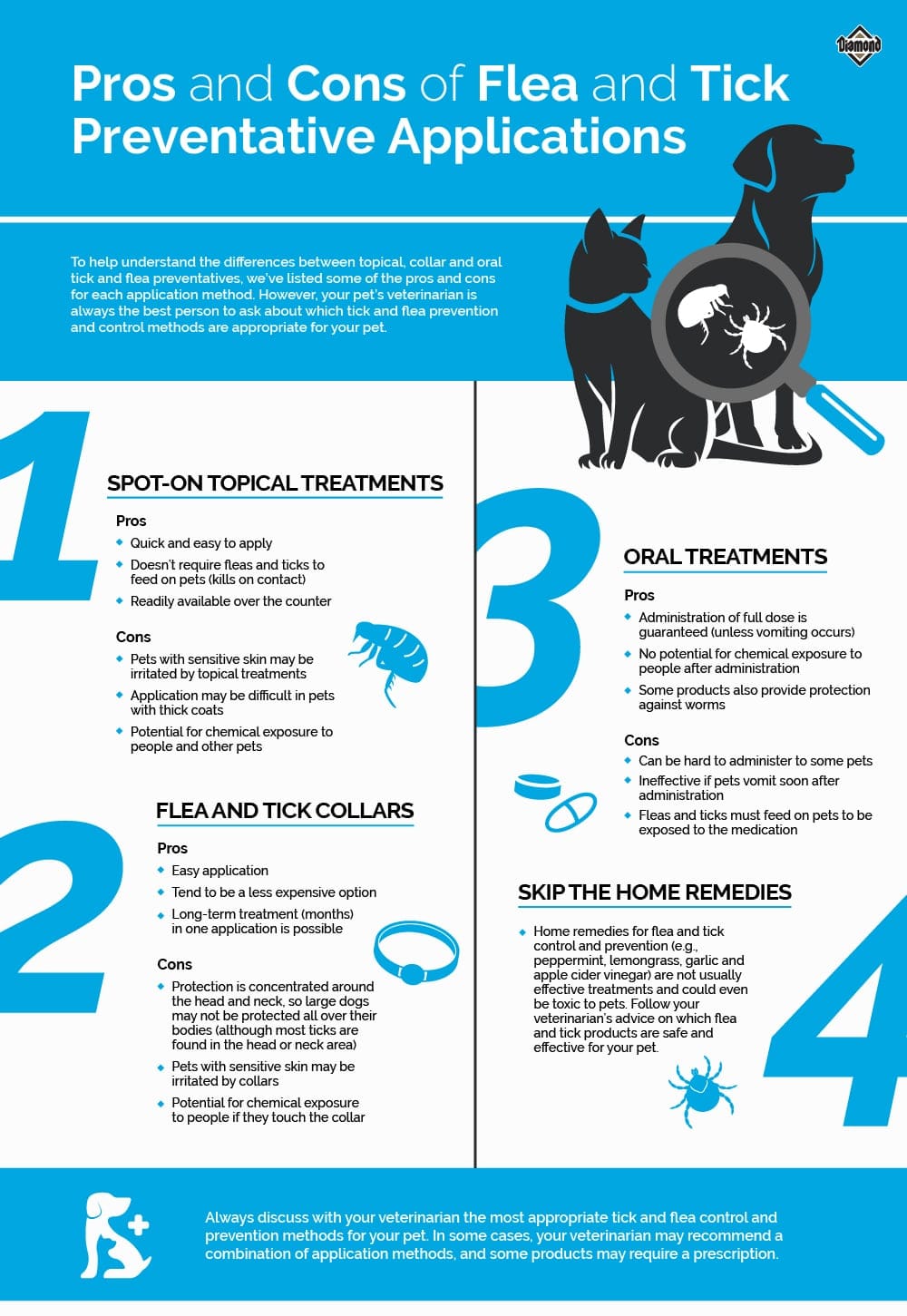Fleas and ticks pose a significant threat to your dog’s health, not only due to the discomfort they cause but also because they can transmit serious diseases. Implementing a consistent prevention strategy is crucial for safeguarding your canine companion and, by extension, your household. This article delves into how dogs contract these parasites, the importance of preventatives, available product types, and essential safety considerations.
How Dogs Get Fleas and Ticks
Dogs most commonly acquire fleas by entering environments where flea populations are abundant. These include outdoor areas with shaded, leafy debris and spaces beneath decks. Indoors, fleas can thrive within carpet fibers and in nooks and crannies under furniture. Ticks are typically contracted when a dog ventures into areas where ticks inhabit, such as tall grass or wooded regions. Ticks remain dormant in these environments, awaiting an opportune moment to attach themselves to a passing animal.
The Importance of Flea and Tick Preventatives
Fleas and ticks are more than just a nuisance; they are vectors for a range of dangerous diseases. Fleas are notorious for causing tapeworm infections and skin conditions like flea allergy dermatitis. Ticks, on the other hand, can transmit diseases such as anaplasmosis, Lyme disease, ehrlichiosis, and Rocky Mountain spotted fever, among others. A critical aspect to consider is that both fleas and tick-borne illnesses can be zoonotic, meaning they have the potential to infect humans. Therefore, preventing infestations in pets is a vital step in maintaining the overall health and well-being of the entire household.
Available Flea and Tick Preventative Products
A diverse array of products is available to combat fleas and ticks, catering to different needs and budgets. The monthly cost can vary significantly depending on the specific product.
- Collars: Products like Seresto collars are designed to repel fleas and ticks and can even prevent ticks from attaching. For maximum efficacy, these collars must be fitted snugly to ensure direct skin contact.
- Topical Treatments: Many topical treatments contain permethrin (e.g., K9 Advantix II, Vectra 3D) and are effective at repelling fleas and ticks, also preventing tick attachment. Other topical products feature fipronil (e.g., Frontline). While effective against fleas, these fipronil-based products do not repel ticks, meaning you might still observe ticks on your pet. These products typically kill ticks only after they have been attached for approximately 24 hours.
- Oral Preventatives: These are chewable medications containing isoxazoline (e.g., Nexgard, Simparica, Credelio, Bravecto). Similar to some topical treatments, they do not prevent tick attachment but offer a relatively rapid tick kill time. This rapid action is crucial, as the risk of disease transmission increases with the duration a tick remains attached and alive. For instance, the bacteria responsible for Lyme disease require at least 1 to 2 days of attachment before they can be transmitted to a dog.
The following chart summarizes common preventative products:
| Product | Frequency | Prescription | Chewable | Topical | Collar | Prevents tick attachment |
|---|---|---|---|---|---|---|
| K9 Advantix II | 1 month | X | X | |||
| Vectra 3D | 1 month | X | X | |||
| Frontline | 1 month | X | ||||
| Simparica, Nexgard, Credelio | 1 month | X | X | |||
| Bravecto | 3 months | X | X | X | ||
| Seresto | 8 months | X | X |
Choosing the Right Preventative
While owner preference for collars, topicals, or chewables plays a role, products that rapidly eliminate fleas and ticks or prevent tick attachment are generally considered superior. Consulting with your veterinarian is highly recommended. They can help you select the most suitable preventative based on your dog’s specific needs, your lifestyle, and your budget. The ultimate goal is to find a product that is both safe and effective, and that you can administer to your dog consistently and without difficulty.
Year-Round Prevention is Key
It is essential to use flea and tick prevention consistently throughout the year. Ticks can remain active even in cooler temperatures, with some species capable of activity at 40 degrees Fahrenheit. Furthermore, fleas can easily survive and multiply indoors, shielded from harsh outdoor conditions. Year-round prevention ensures continuous protection against these parasites.
Water and Preventatives: What You Need to Know
Most flea and tick preventatives are water-resistant. However, it’s advisable to allow topical treatments to dry completely for approximately two days before bathing your dog or allowing them to swim. While Seresto collars can remain on during swimming and bathing, frequent submersion in water may reduce their effectiveness and necessitate earlier replacement.
Safety of Flea and Tick Preventatives
Flea and tick preventatives are generally well-tolerated by dogs and possess a wide safety margin. Nonetheless, like all medications, side effects are possible. Owners should monitor their pets for signs such as nervousness, itchiness, gastrointestinal disturbances (vomiting or diarrhea), and skin redness or irritation.
Crucially, always read product labels carefully. Many products safe for dogs are toxic to cats; for instance, K9 Advantix II should never be used on felines. Chewable medications containing isoxazoline have been linked to a rare risk of seizures. If your dog has a history of seizures, discuss this with your veterinarian before administering any preventative containing this ingredient.
Preventatives for Pregnant or Lactating Dogs
Products containing fipronil, such as Frontline and Parastar, are typically considered safe for pregnant or nursing dogs. For other collar or topical products, it is best to consult your veterinarian. The safety of oral preventatives has not been fully evaluated in pregnant or lactating dogs.
By understanding how infestations occur and the benefits of preventative measures, you can make informed decisions to protect your dog from the myriad health risks associated with fleas and ticks. Regular consultation with your veterinarian ensures the most appropriate and effective protection plan is in place.

